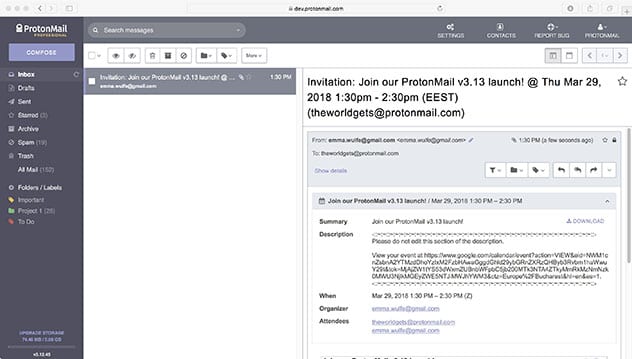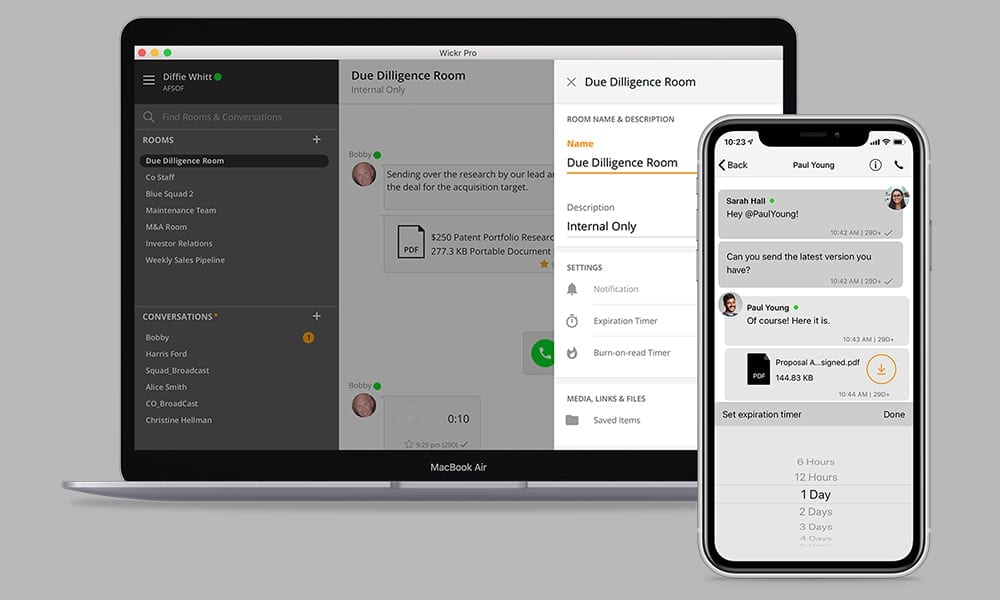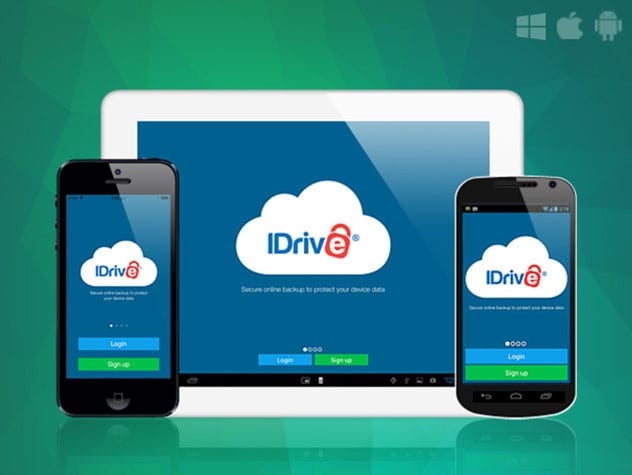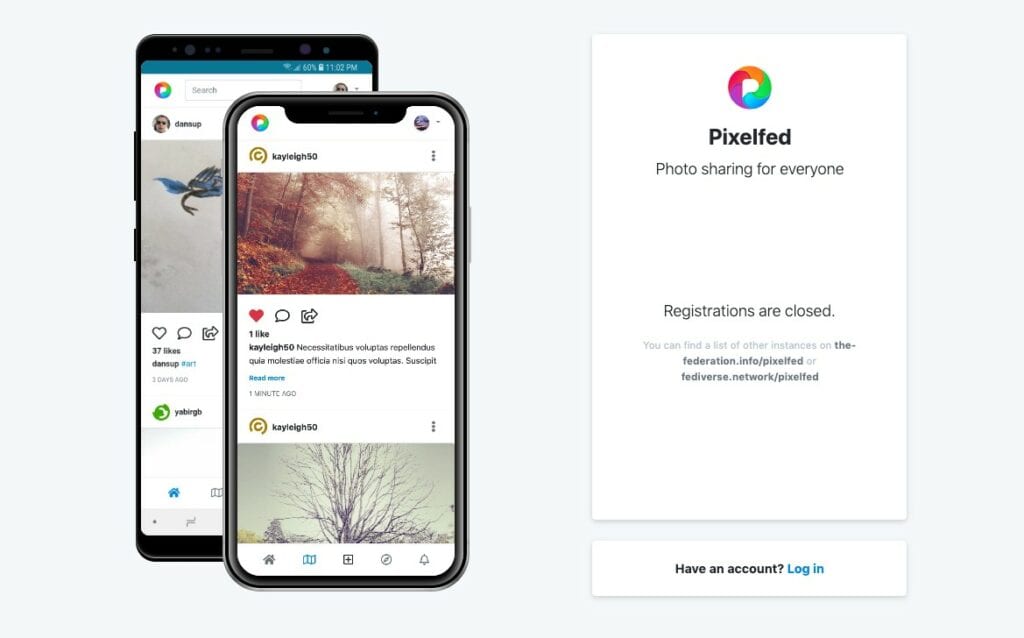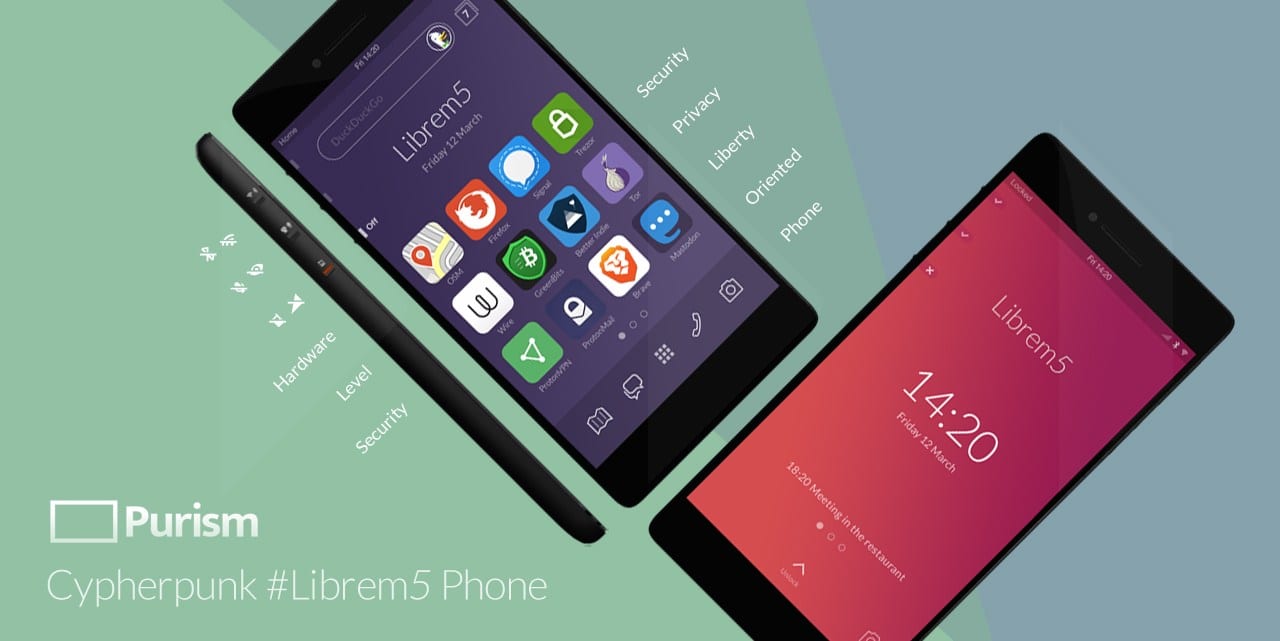 History
History  History
History  Weird Stuff
Weird Stuff 10 Wacky Conspiracy Theories You Will Need to Sit Down For
 Movies and TV
Movies and TV 10 Weird Ways That TV Shows Were Censored
 Our World
Our World 10 Places with Geological Features That Shouldn’t Exist
 Crime
Crime 10 Dark Details of the “Bodies in the Barrels” Murders
 Animals
Animals The Animal Kingdom’s 10 Greatest Dance Moves
 Movies and TV
Movies and TV 10 Box Office Bombs That We Should Have Predicted in 2025
 History
History 10 Extreme Laws That Tried to Engineer Society
 History
History 10 “Modern” Problems with Surprising Historical Analogs
 Health
Health 10 Everyday Activities That Secretly Alter Consciousness
 History
History 10 Dirty Government Secrets Revealed by Declassified Files
 Weird Stuff
Weird Stuff 10 Wacky Conspiracy Theories You Will Need to Sit Down For
 Movies and TV
Movies and TV 10 Weird Ways That TV Shows Were Censored
Who's Behind Listverse?

Jamie Frater
Head Editor
Jamie founded Listverse due to an insatiable desire to share fascinating, obscure, and bizarre facts. He has been a guest speaker on numerous national radio and television stations and is a five time published author.
More About Us Our World
Our World 10 Places with Geological Features That Shouldn’t Exist
 Crime
Crime 10 Dark Details of the “Bodies in the Barrels” Murders
 Animals
Animals The Animal Kingdom’s 10 Greatest Dance Moves
 Movies and TV
Movies and TV 10 Box Office Bombs That We Should Have Predicted in 2025
 History
History 10 Extreme Laws That Tried to Engineer Society
 History
History 10 “Modern” Problems with Surprising Historical Analogs
 Health
Health 10 Everyday Activities That Secretly Alter Consciousness
Top 10 Alternatives To Popular Sites And Apps (That Protect Your Privacy)
There may still be a lot of the 21st Century left to get through, but it seems pretty clear that one of the defining questions of our time is what, if any, right do we have to privacy? From smartphones to CCTV, staying off-the-grid is harder than ever before, and many people seriously wonder if we are on track for some sort of sci-fi fascist “cancel-culture” dystopia. With privacy and security such major concerns in the minds of so many people, here are some services that could give the conscientious consumer more peace of mind and the preservation, at least for now, of free speech. None of the brands listed have paid to be included, and none were aware of their inclusion prior to publication. Having said that, all of these products are excellent and some are even used in the running of Listverse.
Top 10 Ways Google Is Censoring Free Speech
10 DuckDuckGo—Google Alternative
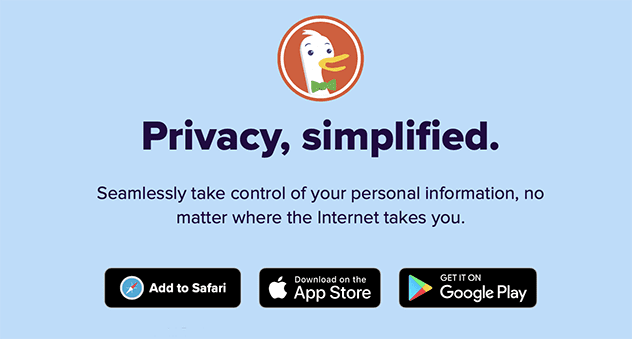
There are many issues with Google’s dominance of the search engine market, such as them giving preferential status to other Google brands, but one of the biggest concerns people have is the data they collect. Everything from what you search to where you were standing when you searched it, and for how long, is collected and stored by Google. While they have released some features to allow people to limit the data they collect, the reality is that most people won’t.
Whether you’re concerned that the queries you search today could resurface in years to come, or you’re just opposed to the mass harvesting of data, DuckDuckGo could be an attractive alternative.[1] Unlike Google, DuckDuckGo does not store any data. Apart from allowing you to search your disgusting or embarrassingly obvious queries without fear of future embarrassment, DuckDuckGo also has a number of useful features that have been removed from Google over the years, and its interface is so similar that the changes you will notice most are the lack of ads, and the big duck in the corner.
9 Epic Privacy Browser—Safari, Chrome, Firefox Alternative
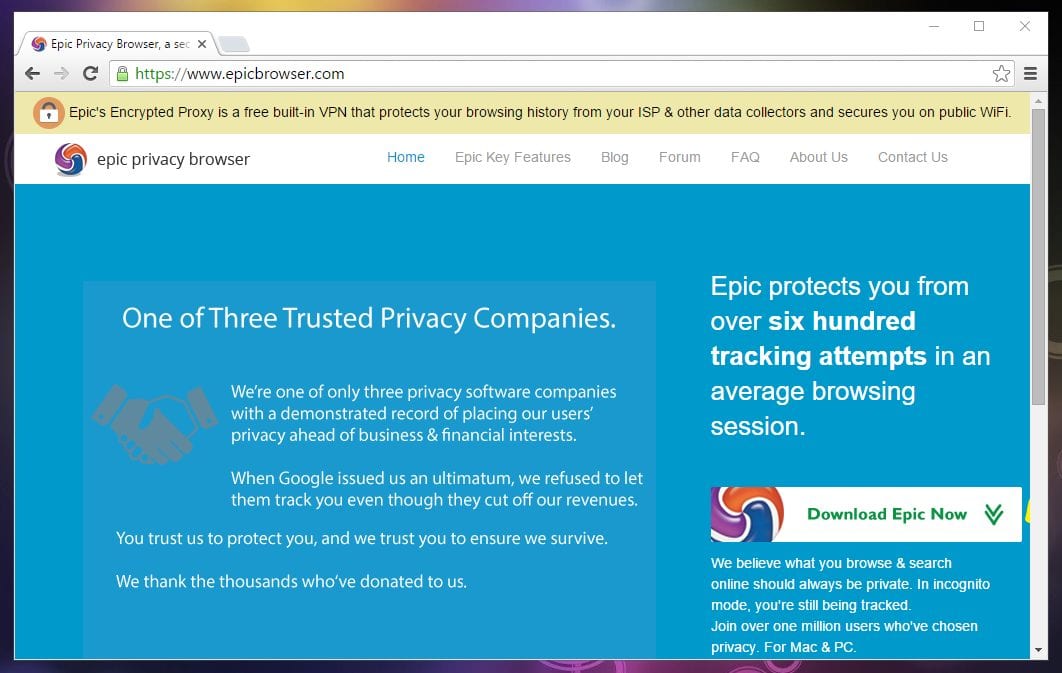
Check out Epic Privacy Browser
It should go without saying that Google’s power is not limited to its main search engine. When it launched its own browser in 2008, Google Chrome quickly became a popular choice amongst internet users, and while it has never achieved the legendary 96% that the fabled Internet Explorer once held in the ancient days of the internet, Chrome’s market share now stands at 49.3%—18% ahead of its next biggest competitor, Safari.
By shifting people towards a browser rather than just a search engine, Google has been able to obtain much more information on its users, and can use this to paint a much more detailed picture of each individual consumer. But the tech industry’s relentless pursuit of data has resulted in pushback from the public, many of whom have turned to open source software to combat this gradual erosion of privacy.
Ironically, many of these browsers are built using Chromium, Google’s open-source browser project. However, this simply provides the base code, which can be tailored to create new browsers, such as Epic.[2] Epic does everything you would expect it to, blocking all kinds of ads, tracking, referral, and IP data transfers, and essentially operates in a permanent “Incognito Mode”, deleting your history, cookies, and so on each time it is closed. But there is a trade-off for this increased privacy, as almost no Google Chrome extensions will work in the Epic browser.
8 Mastodon & Gab—Twitter Alternatives

Check out Mastodon | Check out Gab
Of the many, many issues surrounding the internet and how we should use it, one of the most prominent is social media. Who should be allowed on, at what age, what they can post, and how much responsibility the platform bears for its users are all questions that continue to burn. In response to the apparent inability or unwillingness of the major players to address these issues in any significant way, newer, smaller sites have started to pop up over the years, such as Mastodon.
The basic principle of Mastodon is simple: while big sites such as Facebook and Twitter attempt to maintain control and consistency by centralizing and harmonizing their moderation, Mastodon’s unique selling point is that everything is decentralized—essentially allowing people to create and moderate their own sites.
But Mastodon found itself facing a bit of an identity crisis when another social media site, Gab, migrated onto its servers. While both aim to promote free speech, Mastodon relies on decentralized moderation, while Gab operates on a principle of almost zero censorship, which has given it a sizable number of users with fairly “out-there” views. Mastodon has been vocal about its opposition to Gab, but can’t actually stop Gab from using the service. However, it could easily be argued that Mastodon’s approach to moderation is working exactly as intended, as anyone who doesn’t want to interact with Gab or its users can simply block them entirely.[3]
7 Minds—Facebook Alternative

Even before their somewhat reluctant merger, both Gab and Mastodon had been modelled after Twitter, allowing up to 500 characters per post. But if microblogging isn’t your thing and you’re looking for a more Facebook-like experience, then Minds may be the choice for you.
Upon logging into Minds, you’ll see that it is a pretty blatant copy of Facebook in aesthetic terms.[4] What distinguishes it most from the social media behemoth is its commitment to privacy and the protection of data, in addition to their promotion of free speech. Another key distinction is that, at least in theory, Mind allows people to earn money by using their platform. In brief, users can receive tokens for spending time on the site or posting content to which others react. These tokens can then be used to boost posts, although users can hide all boosted posts as well. The ultimate goal is to allow these tokens to be exchanged for cryptocurrency and translate into real money.
No AI is used to detect content that is not allowed, with the platform instead relying on a small team of human censors. Like many alternative social media sites, Minds has attracted a number of far-right users, although the site does appear to focus on removing extremist posts, while allowing legitimate political disagreements to remain. The CEO is adamant that Minds is genuinely aiming to be non-partisan, unlike sites such as Gab, which was specifically established to counter anti-conservative bias, and has a much more tilted userbase as a result.
6 Signal—WhatsApp Alternative
In terms of respecting user privacy, WhatsApp generally has one of the better reputations. They are particularly well-known for their end-to-end encryption, which means that calls or messages can’t be intercepted by a third-party when going from one user to another. But even with encrypted messages, many have their doubts about the other data WhatsApp collects and how it is used, especially since the platform was bought by Facebook, whose reputation regarding privacy is less than stellar.
Signal is a messaging app created using the exact same encryption technology used in WhatsApp and Facebook Messenger, but with additional features to boot,[5] such as screenshot blocking, self-destructing messages, a non-learning keyboard, and the option of adding a password to access your own files. All data on Signal is stored locally and encrypted, and it is generally regarded as one of the most secure messaging platforms on the market, which is why it has become so popular with likes of both journalists and protestors.
5 ProtonMail—GMail Alternative
ProtonMail is a privacy-focused email service that provides both free-to-use and subscription-based services. Overall, it works like pretty much every other email service, but uses end-to-end encryption for messages sent between two ProtonMail users, and stores all other emails using zero-access encryption, meaning nobody else can access your messages. For additional security, photos are not automatically loaded, and a pop-up asks if you are sure you want to open a link before doing so. Additionally, ProtonMail allows you to create a password for messages going to non-ProtonMail users, as well as create an expiration date for your messages.
Based in Switzerland, which is renowned for its privacy laws, ProtonMail is highly regarded by those who value security.[6] It should be noted that free users are limited to 150 emails per day, and even the cheapest subscription package has a limit of 1,000. But with several packages to choose from, and the option to create custom domains, ProtonMail is well-suited to address both personal and professional email needs.
4 Wickr—Snapchat Alternative
Often referred to as the “alternative to Snapchat”,[7] Wickr is an instant-messaging and video conferencing app available on Android and iOS, with fully functional desktop versions as well. By now, you should be able to guess at least some of the basic features, such as end-to-end encryption and messages that expire after a certain time or self-destruct when read. But the self-described “most secure video-conferencing and collaboration platform” has some additional security measures in place, such as wiping all metadata from any files sent, and several ways to confirm the identity of the person you are speaking to, such as using keys they claim would take “trillions of years” to crack.
Initially designed with high-profile business professionals in mind, Wickr has apparently become extremely popular with those who prefer more of a low-profile. Drug dealers all over the world have started using the app as an anonymous way to find customers, although many frustrated internet users claim the app is so private that these “dealers” will simply take your money and run.
3 IDrive—Cloud Storage Alternative
With AI and machine-learning advancing as quickly as they are, those who are well-versed in privacy have grown increasingly conscientious of what exactly that means. Uploading a photo for storage online is simply not the same in 2020 as it was even in 2015. For example, you may already know that Google combs your photos for metadata, and groups them by date and location. You may also know that they even scan the photos, making it possible to search for things like “dog”, and allowing them to tailor advertisements to you, such as by promoting dog food.
For a more private alternative, something like IDrive will do pretty much everything you need, but without flipping through your photo albums when you’re not looking.[8] It offers all the features you would expect in terms of backup, archiving, encryption, and security, but without doing so in exchange for your data. Although Google offers you 15GB of free storage, IDrive only offers 5GB before charging about $50/year for 5TB. Still, it is a good choice for people who are more concerned about privacy than price.
2 PixelFed—Instagram Alternative
Although Instagram doesn’t collect as much detailed data as the likes of its parent company, Facebook, there are still reasons to be cautious of what it can do. While they don’t offer the same kind of AI scanning to their users that Google Photos does, there’s nothing stopping them from using the billions of photos uploaded to improve their AI behind the scenes, without ever introducing new features to users. And even if we leave the scanning and #10YearChallenge conspiracies to one side, the claim that they can use your images, royalty-free, forever, is true,[9] so there is good reason to pause before posting.
In response to this, the creators of Mastodon have developed an open-source alternative called PixelFed. It has the same appeal as Mastodon, offering more-or-less the same features as Instagram, with strong security, but without selling your data to advertisers. Like Mastodon, PixelFed is federated and decentralised through instances, meaning it operates like a number of mini-sites. The advantage to this is that there is no HQ desperately trying to make a profit, but the downside is that an instance could be poorly managed or just disappear depending on who runs it.
1 Librem—Android and iPhone Alternative
Of course, one thing you need to remember when it comes to privacy is that there is no point in taking all these steps and using alternative services if the device you’re using is still perfectly happy to pass on all the information it sees. Basically, there’s no point in using DuckDuckGo on your Pixel phone.
If you ask someone in-the-know what phone they would recommend to someone concerned with privacy and security, there’s a good chance they will say “Librem”. Built with the sole purpose of being the most secure phone on the market, the Linux-based device offers all the encryption you would expect, without mining your data, as well as some additional features such as killswitches.
However, it must be acknowledged that there is one pretty big drawback: at $1,999 (for the “Made In The USA” edition), the newly released Librem 5 has received pretty lukewarm reviews,[10] particularly regarding its battery life. While most reviewers hail its approach to privacy and security, they add that as an actual phone, it still needs work. That being said, Librem could still work well for the likes of journalists, who could use it only when necessary, and most reviews end on a positive note, hopeful that future releases could really shake up the market.
It should also be said that the makers of Librem also produce highly secure laptops (Librem 13) and desktop computers (Librem 15). You can check those out here.
Top 10 Listverse Lists Google Doesn’t Want You To See

